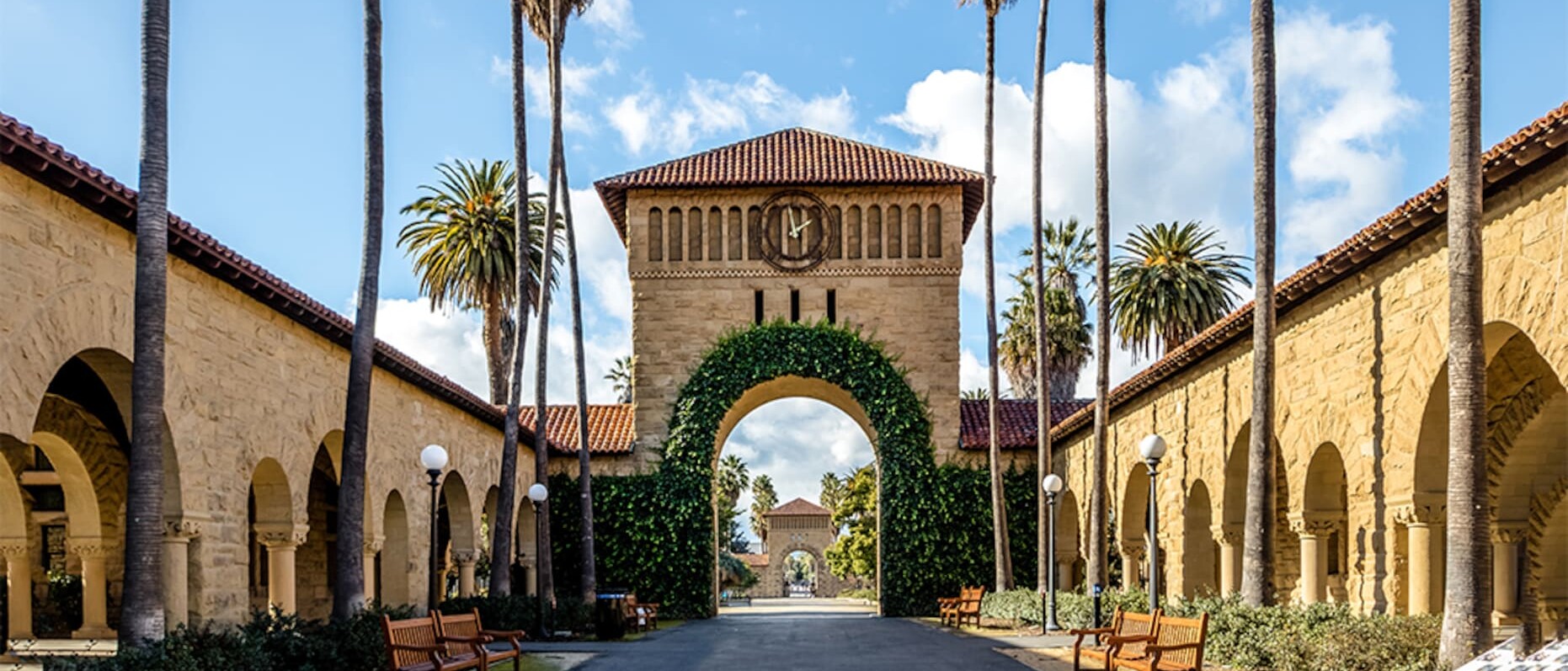A career in software computing? Consider a major other than CS
Guest Blogger, Sam Fisher
Applying to college seems to get harder every year, and the only thing even tougher is applying to college as a prospective computer science major. A New York Times article noted, for example, that in 2019 more than 3,300 incoming first-year students at UT Austin sought computer science as their first choice of major, which was more than double the number who did so five years earlier. The same year, and in response to a reality in which some 20% of Stanford undergraduate degrees are conferred in CS, The Stanford Daily published an article on “CS in Crisis.”
No wonder many prospective first years are fearful about their chances of admission to a top CS program! But it’s not all bad news. As someone who’s done this myself and knows many others like me, I am here to tell you that majoring in computer science is not the only way to get into software engineering (or other top jobs in tech). And, in my opinion, it’s not even the best way.
It may surprise you to hear that, to be a successful software engineer out of college, it likely only requires you to take around five computer science classes while in school. In those five or so classes (let’s say 2-3 core classes teaching you the fundamentals of coding and 2-3 electives in an area you find interesting), you can develop all of the fundamentals you need to kick off your career. Those classes are essential, so don’t skimp out on them, and furthermore, I recommend taking them as early in college as you can.
Once you get beyond those core classes that teach you the fundamentals of how to write code, most of your gains in developing your skills as a software engineer will come from side projects and on-the-job training. Side projects are easy to find. Work on them with your friends, if possible, and treat them like real-world projects. Even if it’s overkill for those projects, try to use Source Control like Github or Gitlab, and try deploying them to a cloud provider through a free trial or student credit programs. You’ll gain key knowledge in places where many computer science majors even fall short, and it’ll help you stand out in your internships and job interviews.
So what classes should you take, and what should you consider majoring in? The short answer: anything you find interesting. Have you always been interested in psychology? Maybe major in that. Or perhaps you love learning new languages and cultures, so you major in Spanish and study abroad in Latin America? Or maybe you’ve always been interested in sciences, and you’ll explore biology, chemistry, or environmental sciences in your first few years before deciding on a major.
And what would those majors do for you if you chose them? Beyond the core value of teaching you how to think and helping your mind grow, you might develop expertise that helps you in your first coding job, or whatever early career you choose.
Let’s say you chose that psychology major; it could make you much more attuned to user experience and how people learn, key skills in user-centered app development, product management, and product design. What if you chose the Spanish major? You could build out a start-up in one of the fastest-growing, low-cost coding hubs in the region like Bogota, and have a cultural leg-up in understanding their labor market and consumer preferences. Finally, if you majored in biology, you could have an enormous advantage applying to be an engineer in the biotech space, working for a company like 23andme or the next great startup.
The world is short on talented computer scientists right now, but even more so, it’s short on people with expertise and passion in their field with enough computer science knowledge to be effective. Those are the people who will be the biggest winners and make the most impact.
Sam Fisher is a senior product manager at Oracle Cloud and graduated from Stanford with a BS in Symbolic Systems in 2014 and an MBA in 2019.
Major Myths, Revisited
A recent article by Verónica Leyva takes issue with students paying undue attention to their choice of majors when researching colleges. In Major Myths, Busted, she argues instead for approaching the college search with an open mind, agnostic about any one path towards a degree. There are, after all, countless pathways to many careers, and colleges tend to be more interested in students who are motivated to learn than those narrowly focused on a major.
I think that Ms. Leyva’s arguments are absolutely sound and we should encourage high school students to identify their academic interest – a desire to engage with certain ideas or questions or modes of learning – and not simply a prospective major – an academic basket of courses set by faculty in the field to enable students to reach towards mastery in one discipline.
To the reasons why high school students should not fixate only on their prospective major, I would add the fact that they will likely change their minds anyway! Little point to researching only colleges with outstanding programs in Astrophysics if in the end you might opt to major in Anthropology instead! (I remember fondly a freshman advisee of mine at Brown who came set on studying Physics, before cycling through Philosophy and graduating as a Music major!) As Homer Simpson reminded Lisa, there is a time and a place for everything and it is called college – a time to try new ideas well beyond the narrow prescriptions of high school and challenge your mind beyond your own expectations. And most high school students are so trained to the narrow “boxes” of five core academic disciplines that they have little concept of how those translate into the 100 or more majors of a typical liberal arts university anyway!
There are good reasons for our current pushback against the tyranny of the major in students’ perception of where they should go to college and why. Many counselors have sat with students who, in months past, had lit up as they talked about their passion for the study of history or for the exploration of their favorite solar system. But then college admission comes into play, and suddenly they fixate on applying for the hot major du jour – computer science, chemical engineering, data science. This in spite of the work of economists like Doug Weber, who has shown that while right out of college STEM fields might yield more professional success, they do not inevitably pay better when measured by lifetime earnings.
And yet, having said all this, after twenty years as a college and academic advisor, I have also come to doubt how far we should go in the opposite direction, towards encouraging high school students to ditch all consideration of prospective majors. In part, this is because of the admission process itself (as I noted in a recent post). Majors are the bureaucratic building blocks of an undergraduate degree. Even the majority of liberal arts colleges that allow students to defer declaring a major for a year or two, still ask about intended majors in their applications. A college where the Environmental Studies department has just expanded might well want to make sure that those professors have a gratifyingly large number of prospective majors; and a college where the Classics faculty takes an interest in admission, might well take note of exceptional young Latin scholars.
Moreover, having students think about prospective majors is not at odds with having them identify exciting intellectual reasons for going to college. In fact, seeing how their intellectual interests connect with a particular academic discipline can help give teenagers a scaffolding with which to explore the things they find curious and exciting. I remember, when I first went to university eons ago, how validating it was to realize that people who were experts in the things I was curious about had thought those mattered enough to gather a corpus of knowledge about them and call it a History major! The practitioners of an academic discipline also use their own linguistic conventions to express their questions and concerns – and how liberating for young people to gain insight into that language in order to express their own ideas!
Ultimately though, my point is simply that an American liberal arts education is an extraordinary way of thinking about one’s learning, and students should look at the exciting range of possibilities it offers them, rather than cast around for a narrow academic box to climb into. But college is also not summer camp, and a conversation about majors might be another way to encourage high school students to view their learning with an equally important and exciting search for rigor and intellectual depth.
The Role of Majors in Applying to a Liberal Arts Program
A liberal arts education assumes that students do not commit to any course of study before they are ready to do so. While there are several courses of study, such as engineering and art, where students do apply to a specific course of study, liberal arts applicants to American institutions will at most be asked to state an academic interest. In fact, many colleges require students to declare a major – such as mathematics, economics or sociology – only at the end of sophomore (2nd) year.
Admitting students with little reference to their majors recognizes the fact that they will change their minds as they discover new ideas and new interests. And liberal arts colleges think this is a really good idea! They want students to roam broadly through an interdisciplinary reservoir of knowledge, finding different lenses through which to look at questions that interest them.
It is easy though to confuse this opportunity to explore, with an academic drifting that lacks rigor and discipline. Many college applicants check the box that says they are undecided about an intended major because they are genuinely not ready to commit to a course of study. But others do so because they fail to see that going to college is ultimately an academic choice, not a simple rite of passage, and they are reluctant to think too deeply about what they hope to achieve there. It is a bit like embarking on a trip without having wasted too much thought on either the route or the destination!
More pragmatically, when you apply to selective liberal arts colleges without any thought about your academic direction, you weaken your application. At the very least it makes it harder to give a strong answer when, for example, Cornell asks you “about the areas of study you are excited to explore, and specifically why you wish to pursue them in our College.” Or when you have to “describe how you plan to pursue your academic interests and why you want to explore them at USC specifically.”
Thinking about your major before you apply has other consequences for your application as well. Your chances of admission will not improve because you checked Biology rather than Sociology. But in your explanation of that choice, you give a college the opportunity to gauge your “intellectual vitality.” Compare a student who writes of an interest in how human behavior is conditioned by culture, with one who wants to study Psychology “because my friends always ask me for advice.” Or compare one who limply expresses an interest in Mathematics “because I am good at it,” with a student describing the beauty of Mandelbrot sets. Perhaps a student has in fact been motivated to study Sociology because “I am a social person,” but her answer seems superficial and thoughtless at best, and simply not very smart at worst!
If you wish to persuade a college that you have intellectual depth and curiosity, you need to support your claim with action. Reading, learning from a part-time job, participating in research over the summer, and even engaging with your teachers beyond what a good grade requires are all good ways to develop your academic narrative. And when you research colleges – size, location, clubs – also make time to contemplate, with excitement and anticipation, the academic opportunities that will be at the heart of your college experience.


